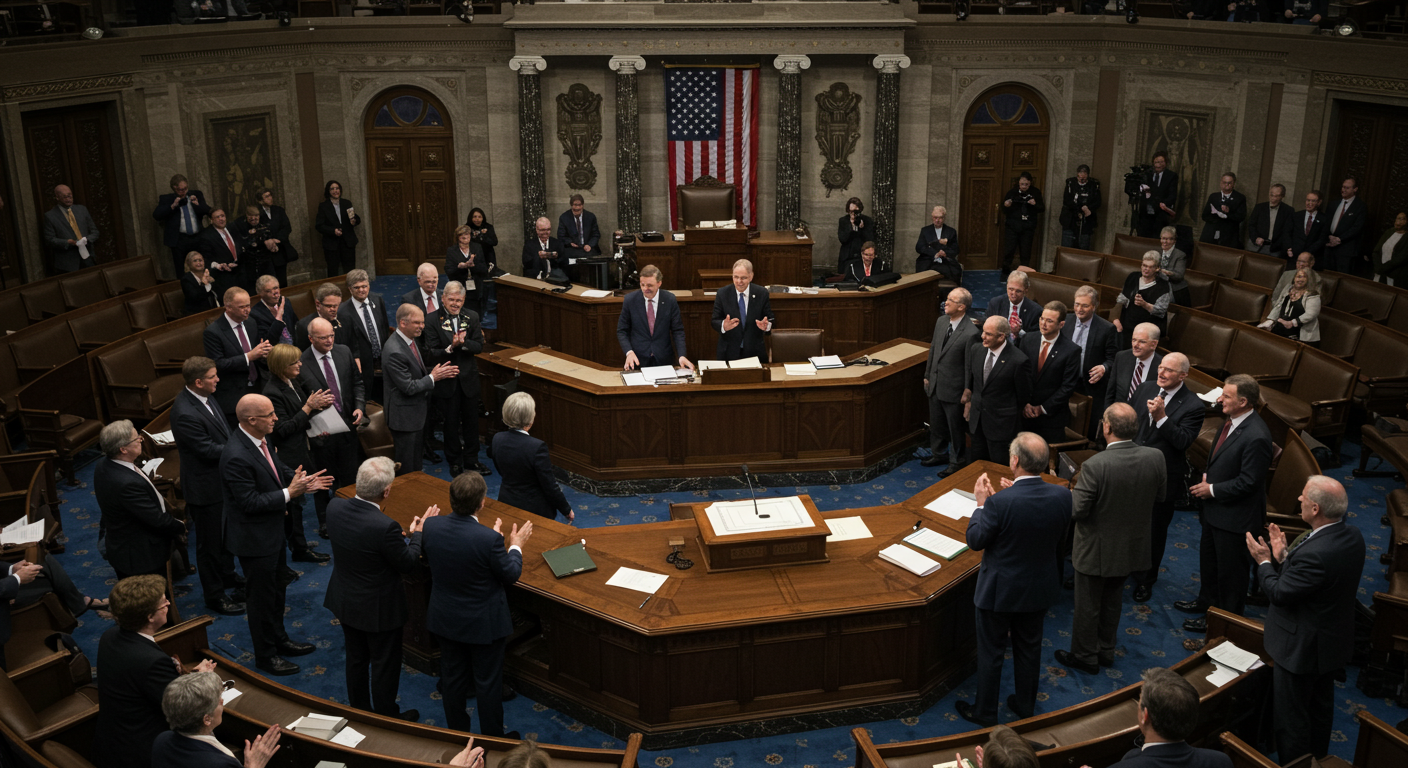The U.S. Senate has made significant strides in environmental policy with the recent passage of a groundbreaking climate bill aimed at addressing climate change and promoting sustainable practices across various sectors. This piece of legislation represents a fundamental turning point in the U.S. government’s approach to tackling climate-related challenges, embracing a comprehensive framework for reducing greenhouse gas emissions and investing in renewable energy technologies.
Historical Context of Climate Legislation
For decades, climate policy in the U.S. has been a contentious issue, with various administrations proposing distinct approaches to address environmental concerns. The passage of this climate bill can be seen as a culmination of ongoing advocacy and demands for more robust action on climate change, particularly following the alarming reports from scientists about rising global temperatures and their implications. Efforts like the Paris Agreement have underscored the urgency of mitigating climate risk, pushing legislation to the forefront of political discourse.
Key Features of the Bill
-
Reduction of Greenhouse Gas Emissions:
The climate bill sets aggressive targets for reducing greenhouse gas emissions by emphasizing a transition to renewable energy sources. It aims for a reduction of emissions by 40% from 2005 levels by the year 2030. This target recognizes the necessity for immediate action to meet international climate commitments and safeguard future generations. -
Investment in Renewable Energy:
A pivotal aspect of the legislation is the substantial investment in renewable energy sectors, including solar, wind, and hydropower. The bill allocates billions of dollars in subsidies and incentives to promote renewable energy projects, making clean energy more accessible and affordable for consumers and businesses alike. -
Support for Local Governments:
Recognizing the vital role that local governments play in combating climate change, the legislation includes provisions for granting funds to municipalities for sustainable infrastructure projects. These funds aim to bolster community resilience to climate impacts and foster the development of green jobs. -
Incentives for Innovation:
An innovative aspect of the bill is the introduction of tax credits and grants aimed at encouraging research and development in climate technologies. By fostering a conducive environment for innovation, the bill seeks to position the U.S. as a leader in technologies that can mitigate climate change and advance environmental sustainability. - Addressing Environmental Justice:
The climate bill incorporates measures addressing environmental justice, targeting resources to communities disproportionately affected by pollution and climate impacts. It emphasizes the importance of including marginalized voices in the climate dialogue, ensuring that everyone has an equitable chance at environmental stability.
Political Landscape
The passage of the climate bill was not without challenges. Bipartisan negotiations played a crucial role, highlighting the urgent need for collaboration across party lines in addressing climate issues. While some Senators championed the bill as a monumental step toward a sustainable future, others raised concerns about the economic implications related to job losses in traditional energy sectors. However, proponents argue that transitioning to a green economy can create millions of new jobs, ultimately benefiting the economy in the long run.
Economic Impacts
The economic implications of the climate bill are significant. By investing in clean energy, the legislation is expected to create a robust job market in areas such as manufacturing, installation, maintenance, and technological development. Furthermore, reducing dependency on fossil fuels can lead to long-term cost savings for consumers, as renewable energy sources typically have lower operational costs compared to traditional energy sources.
Industry Reactions
The response from industries impacted by the legislation is mixed. The renewable energy sector has welcomed the bill enthusiastically, predicting growth opportunities and scalability in innovation. Conversely, fossil fuel industries have expressed concerns over regulatory pressures that the bill introduces, indicating potential financial burdens that may emerge during the transition phase. Nevertheless, industry leaders are also recognizing the inevitability of change, suggesting that adaptability will be essential for future success.
Global Importance
The significance of the U.S. Senate’s bill transcends national borders. As one of the largest contributors to global greenhouse gas emissions, the actions taken by the U.S. will have ripple effects worldwide. By reasserting its commitment to combat climate change, the U.S. aims to influence other nations to adopt more aggressive climate policies and meet their respective emissions targets. This collaborative effort is vital in achieving global climate goals outlined in international agreements.
Challenges Ahead
Despite the triumph of passing the climate bill, challenges persist. The implementation phase is critical, as ensuring compliance from industries and monitoring progress will require robust oversight. Additionally, securing funding and public support will play crucial roles in the successful rollout of renewable energy projects and environmental initiatives. Moreover, combating misinformation related to climate change remains a substantial hurdle, necessitating continued public education and advocacy efforts.
Public Engagement and Advocacy
Public engagement is vital to the success of the climate bill. Grassroots movements and advocacy groups will play integral roles in raising awareness about climate issues and mobilizing communities to take action. Educating the populace about the benefits of renewable energy and sustainable practices is essential for building support and momentum for future climate initiatives.
The U.S. Senate’s passage of the climate bill marks a significant milestone in the pursuit of environmental sustainability. The comprehensive approach taken by this legislation heralds a new era in U.S. climate policy, representing an opportunity to reshape the nation’s energy landscape. With collective commitment from all sectors of society, the path toward a sustainable future appears more attainable than ever.




